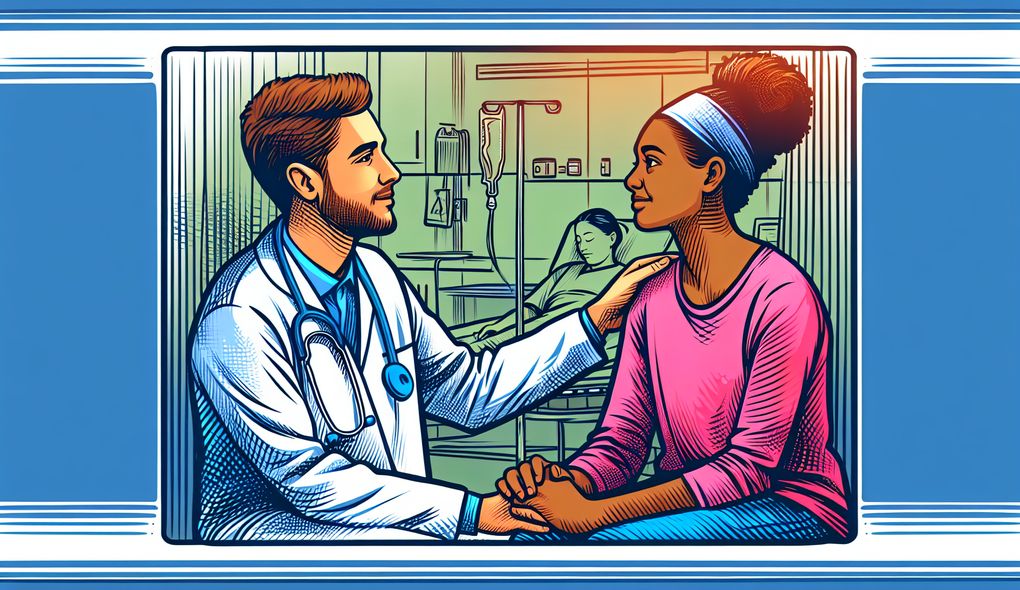Describe a time when you had to handle a patient's relapse and provide support for their recovery process.
JUNIOR LEVEL

Sample answer to the question:
I had a patient who had been in recovery for several months and unfortunately experienced a relapse. When I noticed the signs, I immediately approached the patient in a non-judgmental and supportive manner. I listened to their concerns and helped them develop a plan for getting back on track. I offered emotional support and provided information about local support groups and counseling services. Throughout the recovery process, I maintained open communication with the patient and their family, ensuring they felt supported and understood. In the end, the patient successfully reengaged in treatment and continued their journey to recovery.
Here is a more solid answer:
I had a patient named John who had been in recovery for six months when he experienced a relapse. One day, I noticed changes in his behavior, such as increased irritability and isolation. I approached him with empathy and asked how he was feeling. John opened up about his struggles and admitted to relapsing. I expressed my concern for his well-being and reassured him that relapse is a common part of the recovery process. Together, we developed a plan to address the relapse, including attending more support group meetings and scheduling individual counseling sessions. I provided information about local resources and treatment options, emphasizing the importance of seeking professional help. Throughout the recovery process, I maintained regular check-ins with John, offering emotional support and encouragement. I also collaborated with the rest of the healthcare team to ensure a comprehensive approach to his care. Ultimately, John successfully reengaged in treatment and continued his journey to recovery.
Why is this a more solid answer?
This is a solid answer because it provides more specific details about the actions taken and emphasizes the evaluation areas mentioned in the job description. However, it can be further improved by adding more specific examples of how the candidate demonstrated compassion, observational skills, and knowledge of substance abuse disorders.
An example of a exceptional answer:
I had a patient named Sarah who had completed a 90-day inpatient program for substance abuse. After her discharge, Sarah entered a transitional living facility to continue her recovery journey. A few weeks into her stay, Sarah experienced a relapse. I was notified about the relapse through regular communication with the facility staff. I immediately contacted Sarah, scheduling an in-person meeting to provide support. During our meeting, I utilized active listening techniques to understand Sarah's challenges and emotions. I validated her feelings and reminded her that her relapse did not define her. Together, we created a relapse prevention plan that included additional therapy sessions, participation in a local recovery support group, and increased accountability measures. I also developed an aftercare plan with Sarah's consent, involving her family and the facility staff to ensure a strong support network. Throughout the recovery process, I closely monitored Sarah's progress, conducting regular check-ins and adjusting the plan as needed. Sarah successfully regained her motivation, committed to her recovery, and eventually transitioned to independent living while maintaining her sobriety.
Why is this an exceptional answer?
This is an exceptional answer because it provides specific and detailed examples of the candidate's actions, demonstrating excellent communication skills, compassion, observational skills, and knowledge of substance abuse disorders. The candidate also shows a high level of collaboration with the multidisciplinary team and a commitment to ongoing support. The answer covers all the evaluation areas mentioned in the job description.
How to prepare for this question:
- Familiarize yourself with different treatment modalities and evidence-based practices in substance abuse recovery.
- Reflect on past experiences where you provided support to individuals in challenging situations.
- Study local resources and support groups available to patients in your area.
- Prepare to discuss how you would approach a relapse situation and provide continuous support.
- Practice active listening and empathy to demonstrate your ability to connect with patients.
What are interviewers evaluating with this question?
- communication
- compassion
- stress management
- observational skills
- knowledge of substance abuse disorders
- confidentiality

